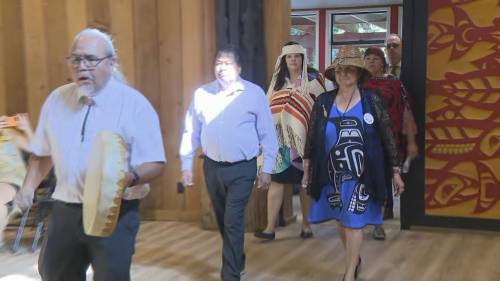In a contentious move that has sparked debate across legal and Indigenous circles, the British Columbia government announced yesterday its intention to appeal a landmark court ruling that recognized the Cowichan Nation’s territorial rights over significant portions of land in the province.
The original decision, delivered last month by the BC Supreme Court, marked a watershed moment in Indigenous land claims litigation, affirming the Cowichan Nation’s historical occupation and governance of territories spanning approximately 780 square kilometers. Justice Margaret Thompson’s ruling had acknowledged “clear and compelling evidence” of the Nation’s pre-colonial presence and stewardship of these lands.
“This appeal represents a significant setback in our path toward reconciliation,” said Chief Lydia Hwitsum of the Cowichan Tribes in response to the province’s decision. “After decades of legal struggles and generations of displacement, our people finally received judicial recognition of what we’ve always known—these are our traditional territories.”
The provincial government’s appeal hinges on what it describes as “questions of legal interpretation and application of precedent” rather than disputing the historical evidence presented by the Cowichan Nation. Attorney General Niki Sharma stated in a press release that “while the province remains committed to reconciliation, certain aspects of the ruling require further judicial clarification to ensure consistency in the application of Aboriginal title law.”
Legal experts watching the case note its potential far-reaching implications for resource development, municipal jurisdiction, and property rights throughout British Columbia. Professor Deborah Curran, Indigenous law specialist at the University of Victoria, told CO24 News that “this case represents one of the most comprehensive territorial recognition rulings since the Tsilhqot’in decision in 2014.”
The Cowichan Nation’s case was strengthened by extensive archaeological evidence, oral histories, and historical documentation showing continuous occupation of the territory prior to European contact. Their legal team presented evidence dating back over 2,000 years, establishing a compelling narrative of governance and land stewardship.
The appeal has drawn criticism from Indigenous advocacy groups across Canada. The Union of BC Indian Chiefs issued a statement condemning the move as “perpetuating colonial patterns of denial and delay” and called on Premier David Eby to reconsider the government’s position.
For communities within the claimed territory, including parts of Duncan and other Vancouver Island municipalities, the legal uncertainty presents complex questions about jurisdiction, development approvals, and future governance structures. Local officials have called for clear guidance from the province on how to navigate relationships with the Cowichan Nation during the appeal process.
Economic implications loom large as well. Several major development projects within the territory now face potential delays as investors and businesses await legal clarity. The ruling had initially triggered a review of existing resource permits and land use agreements that would now remain in limbo pending the appeal’s outcome.
The Cowichan Nation has vowed to continue defending its territorial rights through the appeals process. “Our connection to these lands isn’t just historical—it’s living and ongoing,” said Elder Arvid Charlie. “No appeal can erase the truth of our people’s relationship with this territory since time immemorial.”
As both sides prepare for the next legal battle, this case continues to highlight the complex intersection of Indigenous rights, Canadian law, and the ongoing challenges of reconciliation. Will British Columbia’s legal system ultimately recognize Indigenous territorial claims as foundational to the province’s future, or will technical legal arguments continue to impede the recognition of rights that predate confederation itself?









